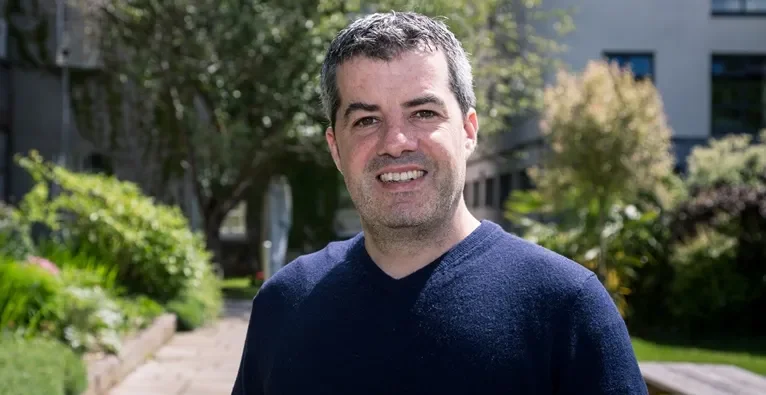

Exploring the philosophy and ethics of technology
This week's Spotlight on Research is with Dr Fiachra O'Brolchain Assistid Marie Curie Fellow Queens University Belfast and DCU Institute of Ethics, School of Theology, Philosophy and Music.
Fiachra, you are a philosopher and an ethicist. What are you currently researching?
“For the last year and a half I have been working on the ethics around developing technology to help people with intellectual disabilities and autism.
I am part of the DOCTRID Marie Curie Assistid programme (Assistive Technologies for people with Intellectual Disability and Autism), which is developing solutions to help people live with conditions such as autism or dementia.
They include technologies that nudge people or remind them to do things, technologies for smart homes and virtual reality systems to help people to learn.
The overall idea is to improve the lives of users, for example to help people with these conditions live more easily in the community rather than needing to be in care homes.”
How do you apply research into ethics to these assistive technologies?
“If we assume these technologies are going to help people, then we need to think about who is going to have access to them and how we can distribute them fairly, for example.
We also need to ask whether having these technologies or not having them could stigmatise or marginalise people.
I’ll also look at issues relating to privacy, autonomy, responsibility, and user-involvement in design.
The goal of my research is to inform and advise the people who are designing and developing the technologies, they often don’t have the time or background to do that.”
How did you become interested in this area?
“I enjoy looking at ethical questions relating to novel technology. For my PhD in Queen’s University Belfast, I looked at the ethics around GM crops.
That interest in the ethics of new technologies ulitmately led me to work on this project, which despite also being about new technologies presents exciting new challenges.
Before starting work on the Assistid project I didn’t know a huge amount about the lives of people with ID, how vulnerable they are and the amount of work that people do to support them.”
What motivates you to research the philosophy and ethics of assistive technologies?
“Well I think in general philosophy and ethics are extremely interesting, and hopefully through this work I can make a contribution to society.
Also, sometimes when you work as a philosopher and ethicist the research can feel quite abstract, but in this project I can see the users, the people who are going to be directly influenced by what we do.”
Do you think people should understand more generally about philosophy? Why?
Yes, I think philosophy is incredibly important, and a huge amount of ethical and political problems can stem from somewhat obsolete philosophical frameworks.
For example, human society is now under huge threat from climate change, and the politics around not tackling the issue is based on nationalistic, atomistic views that don’t take into account that a competitive world is likely to collectively fail.
I think if more people had access to the thinking and questioning frameworks that philosophy can provide, more people could see what is feasible.”
What have you been doing to build more understanding of philosophy into society?
“I am a member of Philosophy Ireland, and we are trying to promote philosophy across the culture of Ireland.
We hold conferences and train teachers to use philosophy in the classroom, we have helped to inform the new short course on philosophy for the Junior Cert and we are going to teach an ethics module in Mountjoy Prison.
For several years I taught philosophy to kids and teenagers at the Centre for Talented Youth, Ireland, at DCU.
The students have a real appetite for philosophy, even the younger kids take to it very well. I think the more we can bring those thinking skills from philosophy into education the better.”
